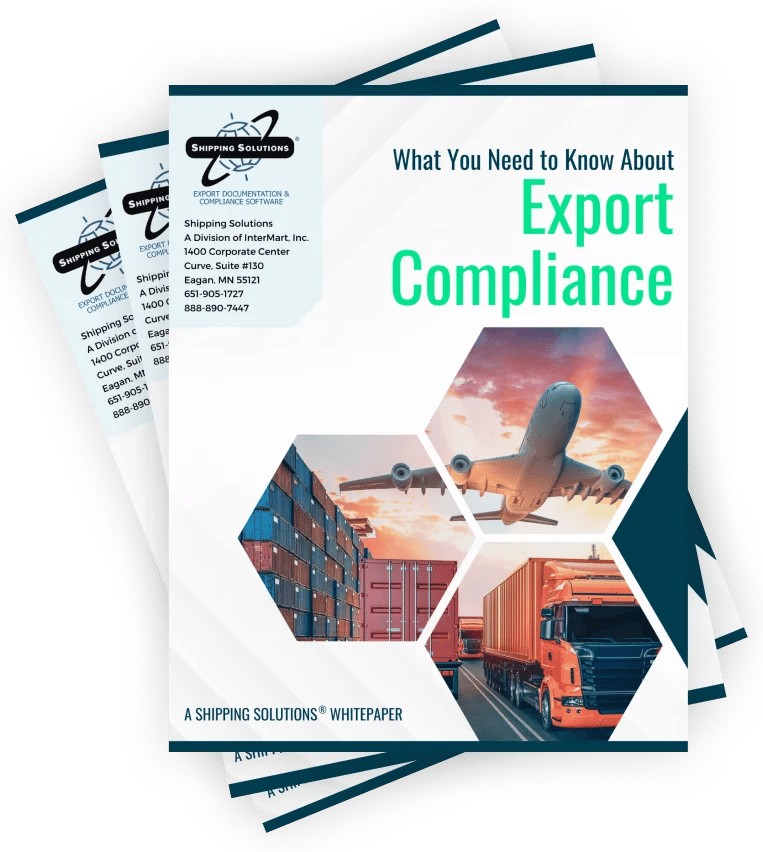The International Trade Blog Export Compliance
Export Compliance Needs C-Level Leadership
On: June 17, 2024 | By:  Mitch Kostoulakos |
3 min. read
Mitch Kostoulakos |
3 min. read
 My recent article about Export Compliance Programs (ECPs) covered the most common self-imposed roadblocks to their implementation. While a formal, written ECP is the best way to ensure compliance, even without one, it is essential that exporters follow best practices and establish compliance procedures. The key factor in the success of a program is the involvement and leadership of senior management.
My recent article about Export Compliance Programs (ECPs) covered the most common self-imposed roadblocks to their implementation. While a formal, written ECP is the best way to ensure compliance, even without one, it is essential that exporters follow best practices and establish compliance procedures. The key factor in the success of a program is the involvement and leadership of senior management.
But how can a mid-level manager (or consultant) convince busy senior managers of their role in compliance? It is certainly challenging, and here are a few suggestions:
- Risk management always gets C-level attention. Provide details about potential fines and penalties.
- Conduct a self-audit and present the results, highlighting the gaps. Charts and graphs are helpful.
- Explain basic compliance regulations such as Schedule B, Export Control Classification Number (ECCN), licensing and especially red flag screening. Don’t assume senior management has this knowledge.
- Describe the role of the Bureau of Industry and Security (BIS). Export reform is underway, and government agencies are ramping up enforcement activities.
- Stress return on investment (ROI), not just cost.
The ROI of Export Compliance
While the ROI for export compliance will vary for individual firms, we can identify an overall value proposition easily surpassing the costs involved in implementing a compliance program.
- Risk Management: Avoid the cost of fines and penalties, which can reach $1 million for criminal violations. Think of compliance as insurance.
- Save Time/Save Money: Export compliance means less rework or follow up of requests for information from customers, government agencies or forwarders.
- Make Money/Grow the Business: Basic competence in exporting enables expansion to international markets. Compliance problems will cause customs delays and be an impediment to growth.
- Enhance the Brand: Like ISO certification and Customs Trade Partnership Against Terrorism (CTPAT), an ECP demonstrates professionalism. Show customers and prospective customers that you know what you are doing.
Once you have brought the importance of compliance to senior management’s attention it will be more difficult for them to look the other way. This is known as self-blinding, which carries its own risk. Here is some information from the BIS website about ignoring the warning signs of a potential export:
Supplement No. 3 to Part 732—BIS’s “Know Your Customer" Guidance and Red Flags
(3) Do not self-blind. Do not cut off the flow of information that comes to your firm in the normal course of business. For example, do not instruct the sales force to tell potential customers to refrain from discussing the actual end-use, end user, and ultimate country of destination for the product your firm is seeking to sell. Do not put on blinders that prevent the learning of relevant information. An affirmative policy of steps to avoid “bad” information would not insulate a company from liability, and it would usually be considered an aggravating factor in an enforcement proceeding.
Securing C-level buy-in for export compliance is crucial for program success. Highlighting the potential financial and reputational risks, along with the positive impact on brand image and business growth, effectively communicates the value proposition of a strong compliance program.
By demonstrating the long-term benefits that outweigh compliance costs, you can empower senior management to champion a culture of export compliance within your organization. Remember, proactive compliance efforts can save your company significant time, money and legal headaches down the road.
Like what you read? Join thousands of exporters and importers and subscribe to the International Trade Blog to get the latest news and tips for exporters and importers delivered to your inbox.

About the Author: Mitch Kostoulakos
Mitch Kostoulakos is an independent logistics consultant and a Licensed Customs Broker (LCB). He was an award-winning International Executive with FedEx Services before launching Ad Hoc Logistics LLC, and previously held management positions in the LTL industry. Ad Hoc Logistics assists small and medium-sized firms with international logistics and customs issues. Mitch holds the CTL—Certified in Transportation and Logistics designation. His articles have been published in Transportation Journal. He was honored to be appointed to the Standing Committee on International Trade and Transportation of the Transportation Research Board beginning April 2020. TRB is a unit of the National Academies of Sciences, Engineering, and Medicine.


